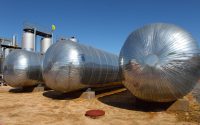The Silent Equipment Killer
What ASTSWMO UST Task Force Found The ASTSWMO UST Task Force solicited information for fiscal year 2012 from all 50 states, five territories, and the District of Columbia in an effort to determine the violations most often encountered during UST compliance inspections. Responses were received from 35 states and territories, covering nearly 59,000 UST inspections […]










